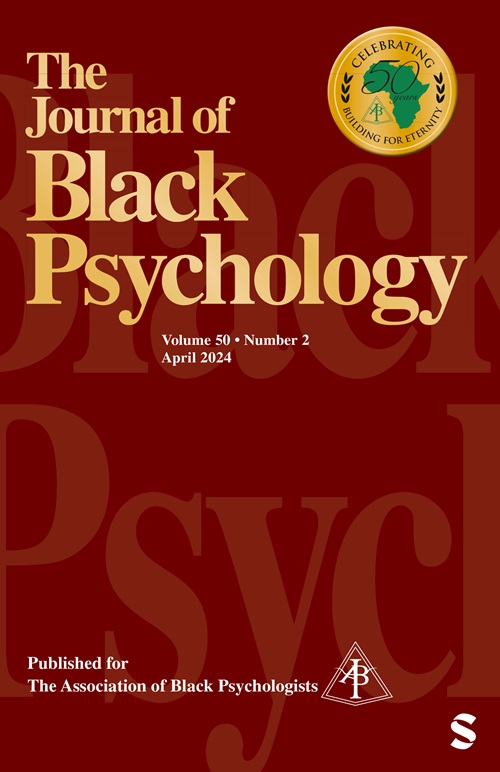赋予亲属关系:考察黑人青少年自然师徒关系中的虚构亲属地位
IF 2.2
3区 心理学
Q2 PSYCHOLOGY, MULTIDISCIPLINARY
引用次数: 3
摘要
本案例研究考察了一个黑人青少年如何扩展他的亲属网络,作为与非父母成年人指导关系中导航和展示代理的一部分。我们有意从美国东南部一项涉及12至18岁青少年的大型混合方法研究样本中选择了一名参与者Bodos。利用叙事方法,我们使用整体内容方法来分析Bodos对半结构化访谈的反应。博多斯用了几种叙述来描述他的经历。我们提供了三个发现:(a)虚构的亲属关系是黑人适应文化的一个积极特征,黑人青年可以利用它作为一种工具,与他们的导师创造一种独特的关系动态;(b)青春期黑人男孩拥有在积极的指导关系中既存在又出现的技能和知识;(c)青年能动性和期望在指导关系中表现出来,以告知和影响那些成年人的重要性。本案例研究进一步加深了该领域对文化实践如何积极影响关系发展并创造独特关系背景和体验的理解。本文章由计算机程序翻译,如有差异,请以英文原文为准。
Conferring Kinship: Examining Fictive Kinship Status in a Black Adolescent’s Natural Mentoring Relationship
This case study examined the way an adolescent Black boy extended his kinship network as a part of navigating and demonstrating agency in mentoring relationships with nonparental adults. We purposively selected one participant, Bodos, from the sample of a larger mixed-method study involving youth, aged 12 to 18 years, in the southeastern United States. Drawing on narrative methodology, we used a holistic-content approach to analyze Bodos’ responses to semistructured interviews. Bodos used several narratives to describe his experiences. We offer three findings: (a) Fictive kinship is a positive feature of Black adaptive culture that can be leveraged by Black youth as a tool for creating a distinct relational dynamic with their mentors, (b) adolescent Black boys possess skills and knowledge that both preexist and emerge within positive mentoring relationships, and (c) youth agency and expectations manifest in mentoring relationships to inform and influence those adults’ significance. This case study furthers the field’s understanding of how cultural practices can positively influence relational development and create a unique relational context and experience.
求助全文
通过发布文献求助,成功后即可免费获取论文全文。
去求助
来源期刊

Journal of Black Psychology
PSYCHOLOGY, MULTIDISCIPLINARY-
CiteScore
8.00
自引率
5.80%
发文量
22
期刊介绍:
The Journal of Black Psychology publishes scholarly contributions within the field of psychology toward the understanding of the experience and behavior of Black populations. This includes reports of empirical research and discussions of the current literature and of original theoretical analyses of data from research studies or programs. Therefore, the Journal publishes work in any of the areas of cognition, personality, social behavior, physiological functioning, child development, education, and clinical application, in addition to empirical research and original theoretical formulations outside traditional boundaries, all integrated by a focus on the domain of Black populations and the objective of scholarly contributions.
 求助内容:
求助内容: 应助结果提醒方式:
应助结果提醒方式:


